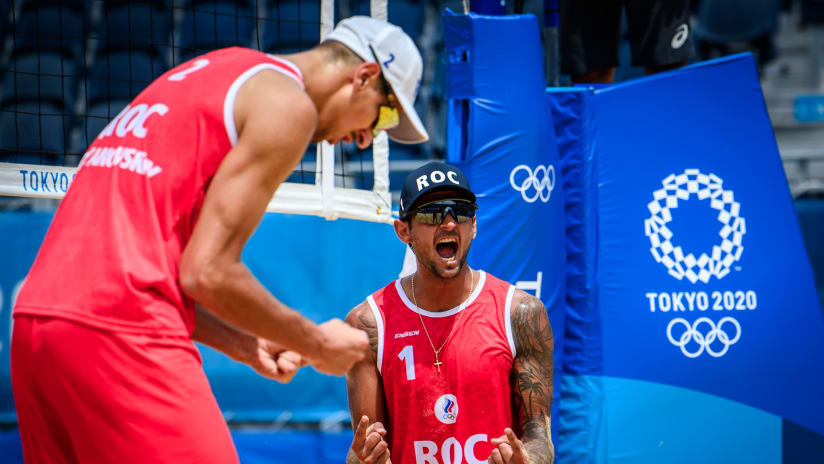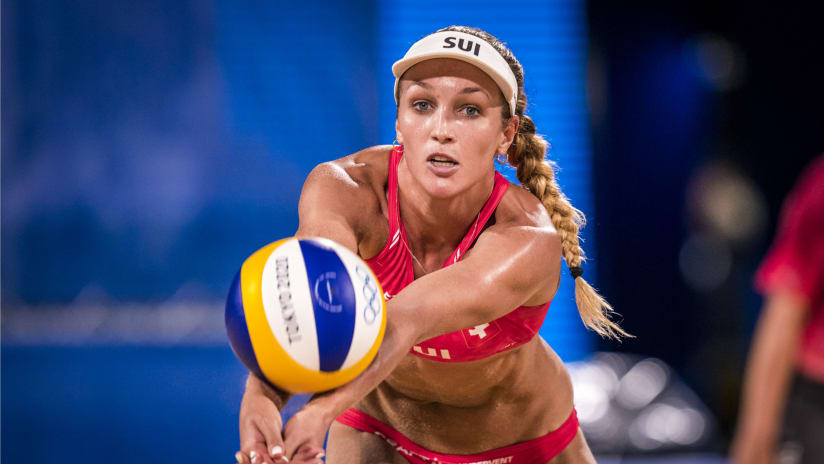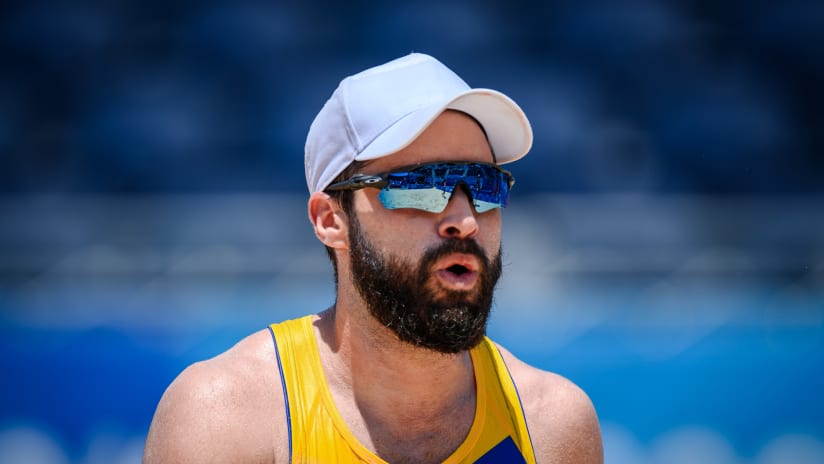Gaudencia Makokha and Brackcides Khadambi may be the first ever Kenyan representatives on Olympic sand and have little previous experience of high-level international beach volleyball, but they refuse to accept the role of underdogs at Tokyo 2020.
Olympic Games Tokyo 2020 - Beach Volleyball
Makokha & Khadambi: We’re no underdogs here
The first Kenyan beach Olympians celebrate Tokyo 2020 participation
Published 06:38, 27 Jul 2021
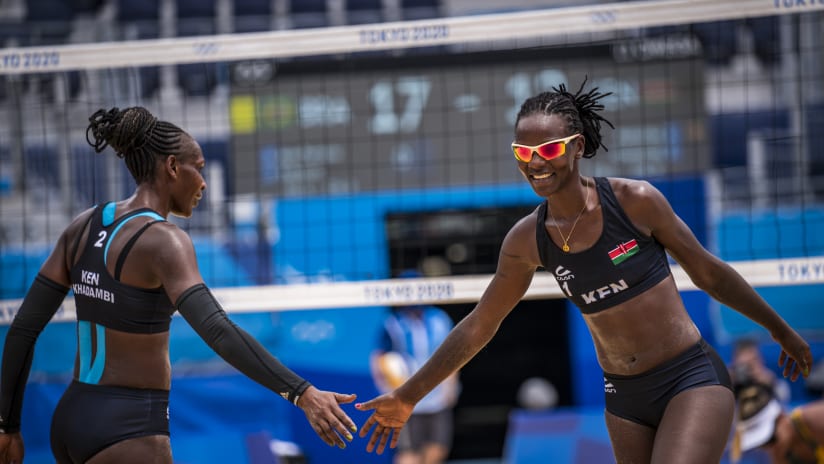
“I think we’re not underdogs here, because we qualified. There are a lot of African teams who wish to be here,” 28-year-old Makokha told Volleyball World after Kenya’s first match at Shiokaze Park. “The only difference is that we are lower-ranked, but I think we are girls and we play the same volleyball.”
The Kenyans had to face a really tough challenge in their opening match in the Japanese capital. Up against Brazil’s Ana Patricia Ramos and Rebecca Cavalcanti, the number four team in the Olympic ranking, Makokha and Khadambi performed well and despite their 2-0 (21-15, 21-9) defeat, the match did not look as one-sided as many might have anticipated.
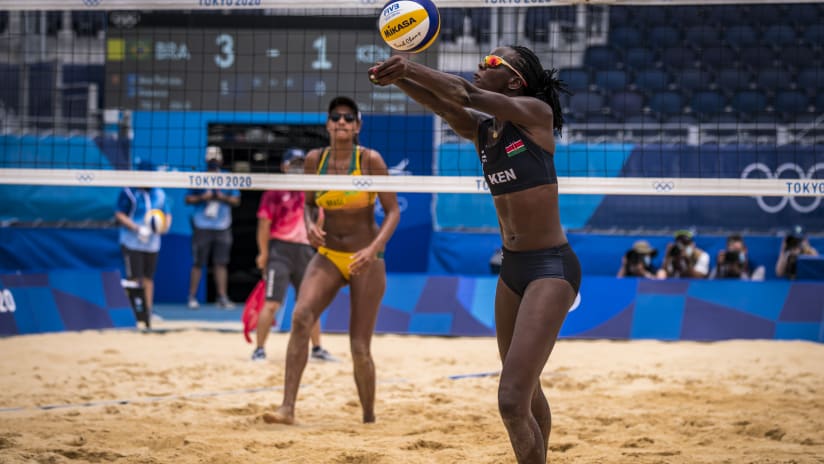
Gaudencia Makokha sets during the match against Brazil
“I think it was not as hard as we expected. Brazil is the toughest team, and we really expected so much from them, but it was not that easy and it was not that hard,” Makokha said. “This was just our first match. We will assess ourselves and we’ll know where our weaknesses are. We will work on them during training and I think in the next match we will play better.”
Just like the Kenyans and the Brazilians, the other two teams in the pool also consist of Olympic rookies – USA’s Kelly Claes and Sarah Sponcil and Latvia’s Tina Graudina and Anastasija Kravcenoka.
“There's nothing special about them; it's only the ranking and the fact that they have the opportunity to play on the World Tour,” Makokha continued. “We try to play beach volleyball, but the only thing we play in Kenya is indoor volleyball. So that’s the only thing that makes us different from them.”
Makokha and Khadambi qualified for Tokyo 2020 by winning Africa’s Continental Cup.
“It wasn’t easy, because with the pandemic we had only one chance, to play the last two rounds as one event. It was also difficult because the weather in Morocco was really hot, unlike Kenya where it was the cold season,” said Makokha. “It wasn’t easy and we’re happy because we worked hard for it and here we are, playing against the best teams in the world, and that’s the most important thing for us.”
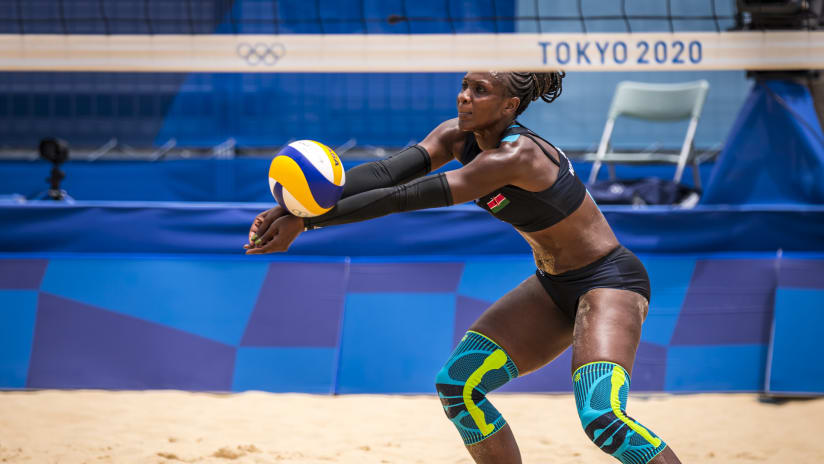
Brackcides Khadambi in action
For 37-year-old Brackcides Khadambi, playing at the Olympics in Tokyo is special in more ways than one. Unlike her teammate, who also took part in the 2017 FIVB Beach Volleyball World Championship in Vienna and the 2013 U23 World Championship in Myslowice, Khadambi practically got into beach volleyball about a year ago. In fact, she was the captain of the women’s national volleyball team of Kenya and expected she would be playing in the indoor Olympic tournament before she got bumped off the squad.
“The story is very touching and I really don’t want to go into details. They said that they wanted to make room for young players, so I said it's OK. Then the beach volleyball coach took me last year, he started training me and we qualified. So now we are here,” Khadambi said.
To be back in Japan brings back memories of the Japanese coach who discovered her for volleyball, Tokyo 1964 Olympic bronze medallist Sadatoshi Sugawara. He brought her into the Kenyan national team and she made her international debut at the 2007 FIVB Volleyball World Cup in Japan.
“Coach Sugawara, who taught me volleyball, is from Japan. I’m grateful to him. He’s the one who saw talent in me and trained me,” said Khadambi. “I wish he was here to see me playing at the Olympics. That was his dream.”
“We are really happy to be at the Olympics, because this is the ultimate event for all sports,” summed up Makokha. “We are really happy to be part of history.”
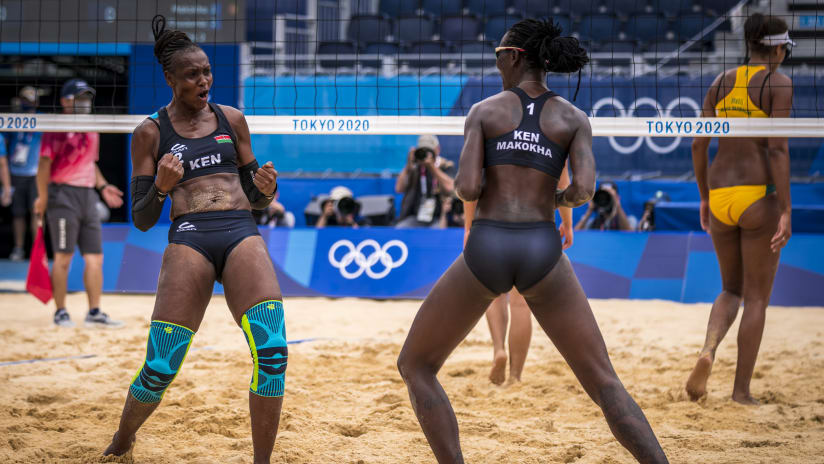
Makokha and Khadambi celebrate a successful rally

